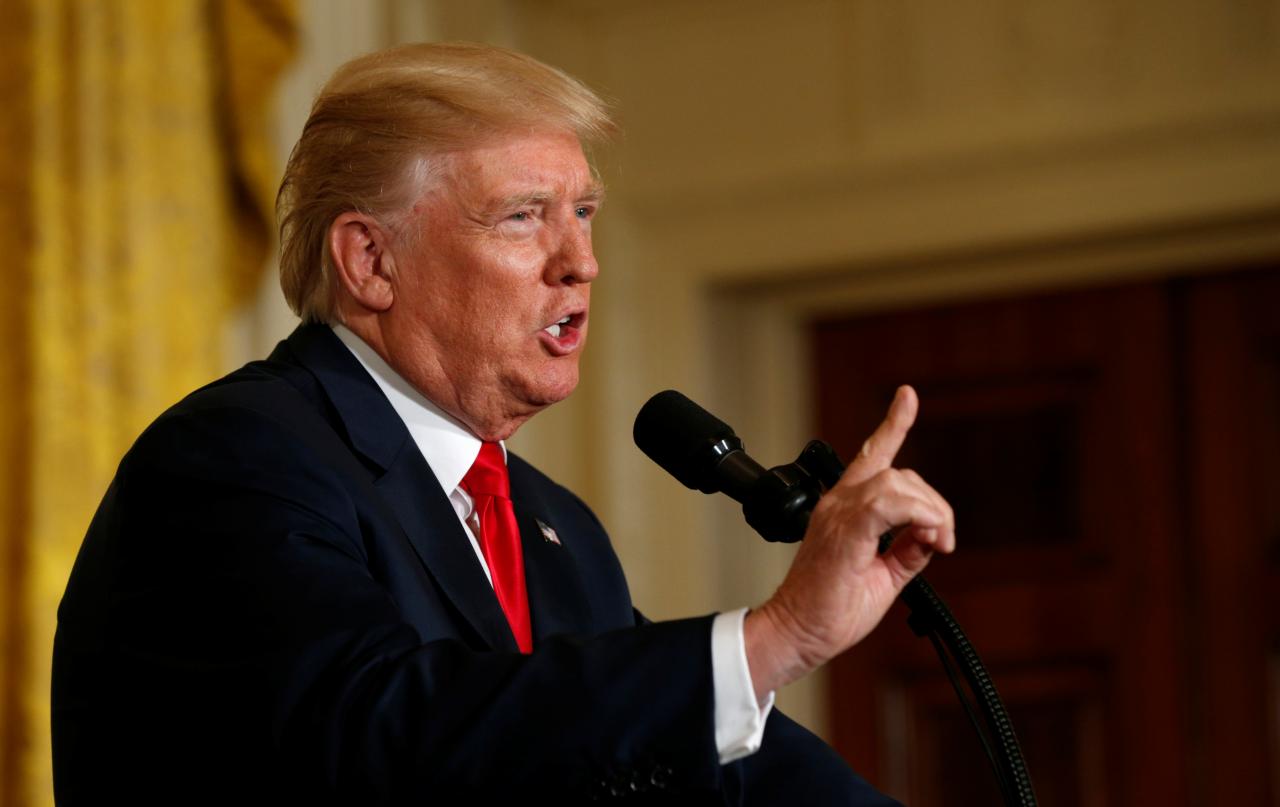The world watches in bewilderment as the U.S. President Donald J. Trump hurls his words out at the world, like so many toys out of his pram, wondering where or rather upon whom they will fall next. Trump certainly gives an unprecedented and sinister significance to what I have called the power of words in international relations.
For Trump, words hold no content. His morning’s truths have turned “fake news” by midday. Words are like empty shells. Or weapons, to be flung at friends and foes alike – since, we now know, these are all the same to him. Let’s hope these weapons are not of the nuclear kind. Let us hope this Humpty Dumpty knows the difference between egg shells and shells of another type.
For all the unpredictable rashness, one pattern has emerged from the havoc-wreaking of his recent foreign policy tour. Trump has appeared hellbent on causing as much damage as possible to female world leaders, preferably those at the helm of the United States’ closest allies.
German Chancellor Angela Merkel was first in his line of fire, who was taunted for having the first moral stance on immigration and advised that she’d better buy (preferably U.S.) weapons instead.
Then came British Prime Minister Theresa May, the woman who stepped in to clean the Brexit boys’ mess. She was duly chastised for seeking to chart the more diplomatic course with the E.U., because, well, the Boris (Johnson) “would make a great prime minister.”
True, female leaders are not the sole targets of Trump’s erratic jibing. Only let’s look at the rhetoric. The Canadian Prime Minister Justin Trudeau was cast out a few weeks ago for being “very dishonest and weak.” Hear: too female.
Conversely, at the recent summit in Helsinki, Trump had no reason to believe that Russia had interfered in the U.S. elections, because, well, Vladimir Putin sounded “very strong” when he said as much.
One leader who seems to have emerged unscathed, despite (or perhaps because) not having held back on critiquing some of Trump’s positions in the U.S. Congress, is the French President Emmanuel Macron. But then, in France, the right-wing populist politician who is closest to Trump’s ilk, to whom he might have leant his support, is… a woman (Marine Le Pen).
Scholars of international politics like to insist that world politics differ from domestic politics. But let us hope that here too, Trump surprises us: when Bavarian Premier Markus Soder, who has been called “Germany’s Trump,” started ratcheting up his shrill assaults on Angela Merkel, he unleashed an unexpected backlash amongst the German public, who rallied to her support, reversing her downward trend in the polls.
There are hints that a similar chain reaction is afoot around the world, perhaps not quite of solidarity – that’s a rare commodity in international politics – but at least to jointly coral the Trump-effect and leave words and old theories their meaning. For example, that more trade and interactions between states tend to reduce the likelihood of wars.
In the wake of Trump’s tour, the E.U. and Japan finalized a trade deal that was five years in the making. The agreement will create the world’s largest free trade area, covering 37 percent of global trade. Two of the biggest economies have sent a powerful signal, not merely that they reject Trump’s protectionism, but that they are prepared to go it alone without the United States.
It is not just the E.U. and Japan sending out this message. China’s Prime Minister Li Keqiang said that China “wants to see a united and prosperous E.U.” the day after Trump called the E.U. “a foe.” Meanwhile, Trudeau having elegantly shrugged off the insults, has been busy repairing the diplomatic ties NATO Trump was tearing up, stopping, on his way to to the NATO summit in Brussels, to visit the Baltic states who are amongst the most sensitive about the old western security alliance.
“All the king’s horses and all the king’s men/ Couldn’t put Humpty together again” once he had fallen. But perhaps, and contra the nursery rhyme, it’s time to stop trying to. Perhaps the biggest surprise will come from the openings that all this wreckage has created.
There’s been a lot of talk of the end of the western liberal order. Yet, for all the old attachment to it, its benefits have been persistently unevenly distributed. The prospect that Trump is opening for the world is that this order no longer needs to be neither exclusively Western, nor steered by English-speaking countries. This, Great Britain found out when it sought a post-Brexit deal with Japan, who duly told it needed to sort out its business with the E.U. first. The recent rapprochements, between the E.U. and Japan and the E.U. and China, may afford interesting models for conceiving the world’s order differently. The Iran deal offers another opportunity for the world to stick together and move forward without the United States. Why should this new order necessarily be worse?



















